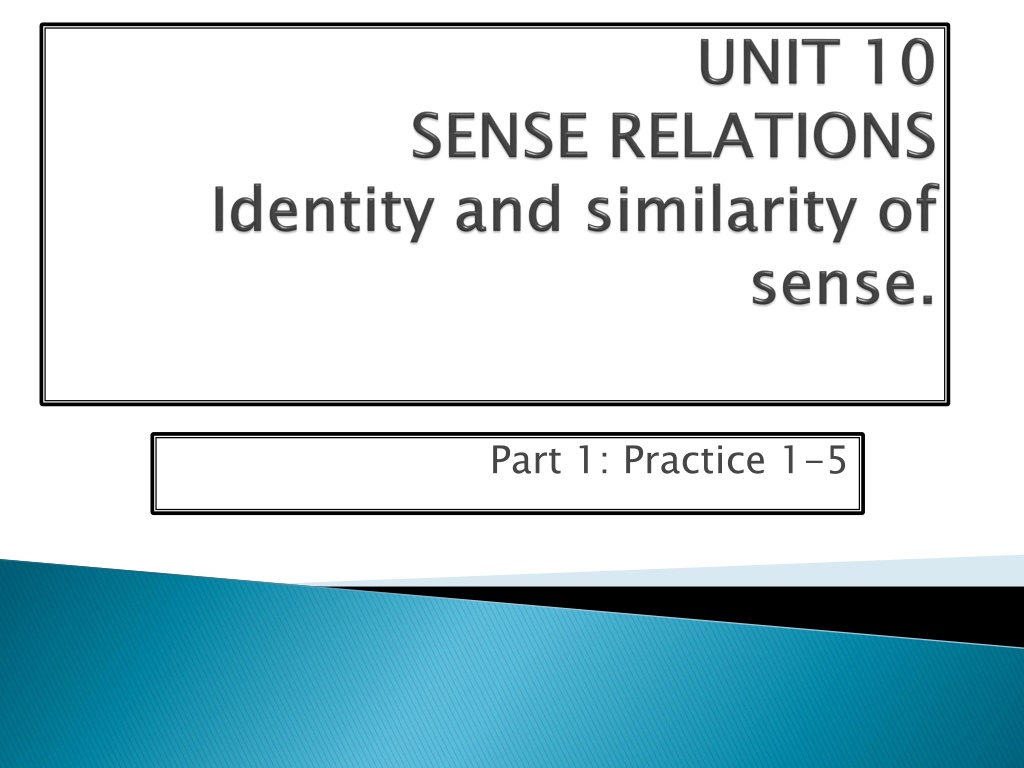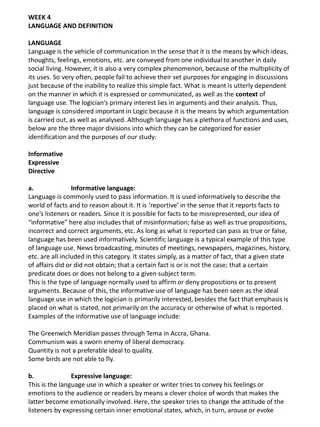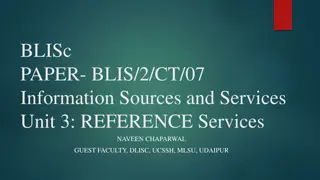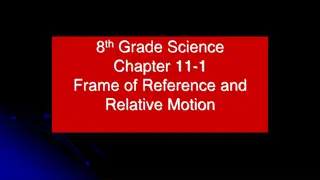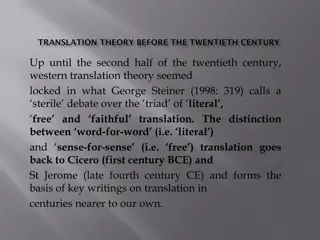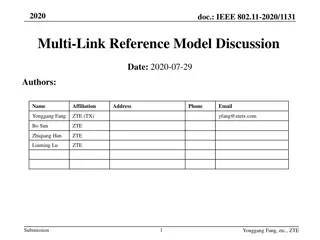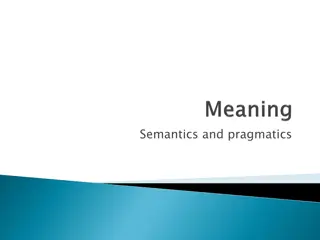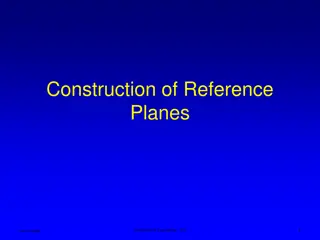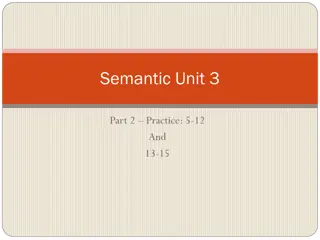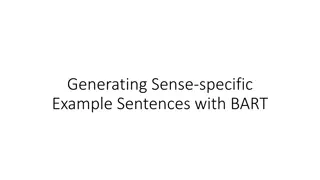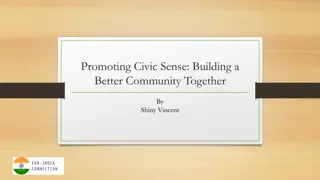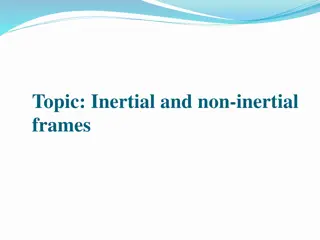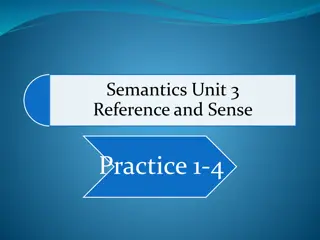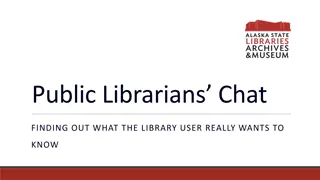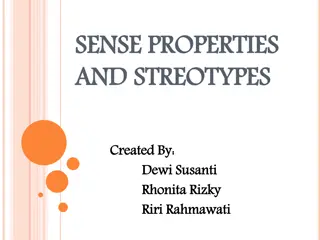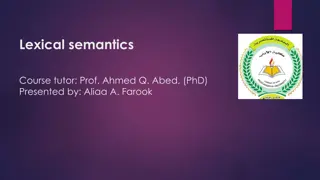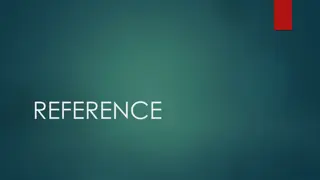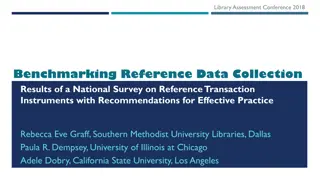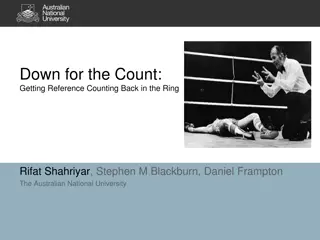Understanding Sense and Reference in Everyday Language
Explore the use of words like "mean," "meaning," and "meant" in everyday language, delving into whether they indicate sense or reference in different contexts. Dive into examples and concepts like synonymy, sense, and interdependence, enhancing your understanding of language nuances.
Download Presentation

Please find below an Image/Link to download the presentation.
The content on the website is provided AS IS for your information and personal use only. It may not be sold, licensed, or shared on other websites without obtaining consent from the author. Download presentation by click this link. If you encounter any issues during the download, it is possible that the publisher has removed the file from their server.
E N D
Presentation Transcript
Words such as mean, meaning, meant etc. are used ambiguously in everyday language to indicate either sense or reference. (1) Do the words mean and meant indicate sense (S) or reference (R) in the utterance: "I'm sorry to have disturbed you. - when I said 'Will you move your chair?', I didn't mean you, I meant Patrick here." (2) Does the word means indicate sense or reference in: "If you look up ochlocracy, you'll find it means government by the mob. S/R (3) Which of the following is correct? Circle your answer. (a) The sense of any word is its dictionary definition, in the form of a complete set of necessary and sufficient conditions for its use. S/R The sense of a predicate is the set of all things it can be correctly applied to. (a) (c) The sense of a predicate is its indispensable hard core of meaning. (4) Are the following sentences analytic (A), synthetic (S), or a contradiction (C)? (a) John is simultaneously a man and not a human being (b) Mussolini was an Italian (c) Every circle is a geometric shape A/S/C A/S/C A/S/C
SYNONYMY is the relationship between two predicates that have the same sense. In most dialects of English, stubborn and obstinate are synonyms. In many dialects, brigand and bandit are synonyms. In many dialects, mercury and quicksilver are synonyms. Note that our definition of synonymy requires identity 'of sense. This is a stricter definition than is sometimes given: Sometimes synonymy is defined as similarity of meaning, a definition which is vaguer than OURS. The price we pay for our rather strict definition is that very few examples of synonymy: so defined: can be found.
(1)The thief tried to CONCEAL/HIDE the evidence Y/N (2) I'm going to PURCHASE/BUY a new coat (3) These tomatoes are LARGE /RIPE (4) This is a very LOOSE/SHORT definition (5) You hope my PROFOUND/DEEP sympathy Y/N (6) It is a very WIDE/BROAD street Y/N Y/N Y/N Clearly the notions of synonymy and sense are interdependent. You can't understand one without understanding the other. These concepts are best communicated by a range of examples.
In the following sentences, do the pairs of words in capitals have the same sense? (They do differ in their dialectal, stylistic, or social associations.) Circle S for 'same' or D for 'different'. (1) He comes to see us every FALL/AUTUMN Y/N (2) Nothing is more precious to us than our FREEDOM/ LIBERTY Y/N (3) The body was found in the BOOT/TRUNK of the car (4) We've just bought a new HOUSE/APARTMENT (5) John got a bullet wound in his HEAD/GUTS Y/N (6) A guy/dude I know has pickled onions for breakfast Y/N Y/N
For example, hide could be the intransitive verb as in Let's hide from Mommy; hide could be the transitive verb, as in Hide your candies under the pillow; hide could be the noun, as in We watched the birds from a hide; and hide4; could be the noun, as in The hide of an ox weighs 200 lbs. Each of these is a separate predicate though they are all the same word Each of these is a separate predicate though they are all the same word
(l) deep/profound (a) You have my deep/profound sympathy (b) This river is very deep (This river is very profound is unacceptable.) (2) ripe/mature a) _________________________________________________________ b) __________________________________________________________ (3) broad/wide (a)---------------------------------- (b) ------------------------------- (4) earth/soil (a) --------------------------- (b) ------------------------- (4) side/edge (a) ----------------------------------- (b) -------------------------------
Bachelors prefer red haired girls is a paraphrase of Girls with red hair are preferred by unmarried men Look at the following pair of sentences, which are paraphrases of each other. (A) John sold the book to a grandson of W.B. Yeats (B) A grandson of W.B. Yeats bought the book from John It is not possible for (A) to be true while (B) is not (assuming that we are dealing with the same John and the same grandson of W.B.Yeats). Thus (A) has the same truth value as (B), so that if (A) is true, (B) is true and vice versa; also, if (A) is false, then (B) is false and vice versa.
(1) John is the parent of James James is the child of John (2) John is the parent of James James is the parent of John (3)My father owns this car This car belongs to my father P / NP (4)The fly was on the wall P/NP The wall was under the fly (5) Some countries have no coastline P/NP Not all countries have a coast line P / NP P / NP
Bonus assignments are due at the end of the next class. They MUST be TYPED, have your GROUP (C) OR (D), and have your SERIAL NUMBER. They must be free of grammatical, spelling, and punctuation errors. NO LATE ASSIGNMENTS WILL BE ACCEPTED! Unit 10: Practices 6 Review for Mid 2 is on Sun. 2 3 3- -12 class (Wednesday) midterm. Unit 10: Practices 6- -15 Review for Mid 2 is on Sun. 2- -12 12- -12 The 2 class (Wednesday) You must attend the midterm. 15 12- -12 and Mon. 12- -12 in 12 and Mon. 12 in 12 The 2nd ndMidterm is on 5 You must attend the Midterm is on 5- -12
